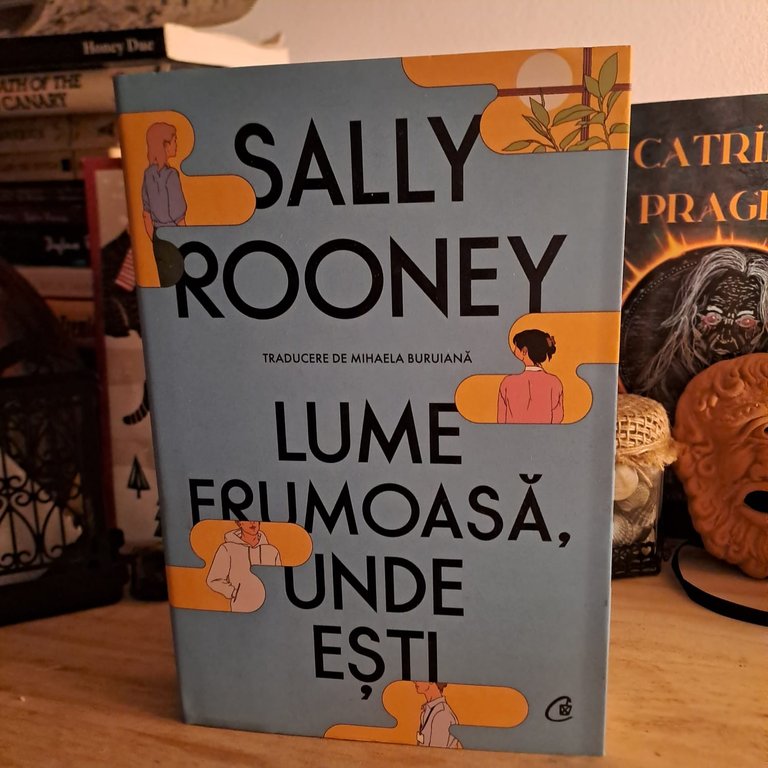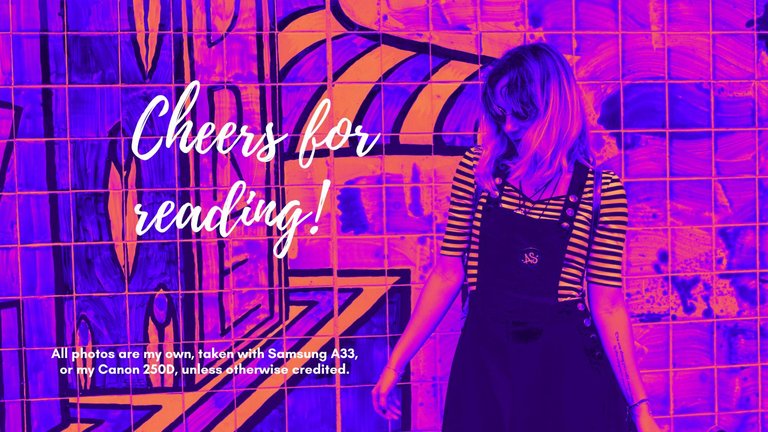I first picked up Sally Rooney's Normal People, I'm somewhat ashamed to admit, based on its bestseller status. Had I known she was an Irish writer first, for whom I've noted in the past a proclivity, that might've added a reason, but no. I tried to read it because it was cool at the time, and promptly closed it back up again. The writing in present tense. The sounding like you're trying to sound like the cool kids. Everything just put me off immensely.
But then fast forward a couple of years to this spring, I started watching the Netflix adaptation. I think Paul Mescal's a good actor. It's always some guy, isn't it? Anyway, the series wrecked me. It was fantastic. It did such a superb job of capturing what it is not only to be depressed, but to feel ashamed with yourself. It talked about some very interesting topics, questioning the lengths we're willing to go to letting people hurt and debase us just to feel something. Just to feel like we're wanted. What we're willing to put up with when we don't think we're worth all that much. I wrote about it here.
Well. Suffice to say I enjoyed it a great deal, in that way that I was talking about the other day, that leaves you a little messed up. Enough to pick up another Rooney book (which is saying something if I've made up my mind your writing sucks), Beautiful World, Where Are You? for a Christmas present for my friend. And since I hadn't read it, I figured I'd do that and got my own, just because I'd hate gifting something I had no clue about. I picked it because I hoped it would make for a bit of a lighthearted change from the typical self-improvement psychology stuff I usually buy her.

It does and it doesn't. It chronicles the strained relationship between best friends Alice and Eileen. Alice is a successful author recovering from a nervous breakdown. Eileen is, well, she's the definition of someone who tries very hard to be there for everybody and hopes it will earn her a place at the table.
It's much lighter by comparison with Normal People, I thought, though it shares many of the broader underlying themes. It has, buried inside it, that same sentiment of shame, of feeling like you're not enough, like you're an embarrassment. It takes this brilliant concept (brilliant in its universality) of growing up essentially a good person and trying to live like you've been taught and finding maybe the world doesn't want to play with you. Like maybe your best to give just isn't enough. And what do you do from there?
Rooney's really good at capturing that, and she does it in this wonderful, subtle way. She doesn't come in shouting from the rafters that she's doing another depresso book, not at all. She only very sparingly speaks the monster's name in this book, letting it trickle out through the dialogue (and the absence of communication that permeates the back-and-forth string of emails between protagonists).
"We hate people for making mistakes so much more than we love them for doing good that the easiest way to live is do nothing, say nothing, and love no one."
It's interesting, the way she plays on this theme with the two main characters and their respective love stories. Eileen, it seems, is treading water with her lifelong best friend, Simon. It's a good take on a very cliche subject - the best friends who don't go out afraid they'll ruin the friendship - in that it catches on the very dark reality that most romcoms in this area typically miss. The loneliness that's life, perhaps especially modern life, and the prospect of losing the one person who puts up with you. You see a romantic comedy along these lines, you think "wouldn't it be a shame if they fell out". But with this book, it tells you in no uncertain terms how close Eileen is to doing something drastic, should Simon not want to be her friend anymore.
Alice plays on the same theme of not really daring to love, despite professing her love very early on to a man whom she meets on Tinder and who treats her, at least at first, very poorly. There's the idea behind both characters of keeping people at arms' length, lest they notice what a complete fuck-up you are, how very unlovable.
"It's like she went out of her way to make it difficult for us to see each other, and now she's nursing her hurt feelings, telling herself I don't care about her. When actually, she was the one who left. I didn't want her to go."
It's a really beautiful moment because it has in it the seed of something very honest, and you think how simple it is, how much tragedy would be avoided if we only said that more often to people. I don't want you to go.
Beautiful World, Where Are You? is a difficult book in that it wasn't, for me, love-it-or-hate-it. There's moments where it invites both. I was no fan of the extrapolations on the virtues of Marxism, nor did I care for the grating doses of extreme feminism and climate catastrophizing that the characters vent to each other.
I didn't think the happy epilogue-style ending was necessary, but then, I almost never like happy endings. And yet, I liked the conclusion, because it's suddenly a year later, and Eileen and Simon are having a baby, and it's the sort of book where you'd expect a long discussion on what a crime it is to have babies nowadays and what a tragedy for every modern woman. I dreaded that, and was glad it doesn't go there. It could've done with less apologizing. Surely, if you decide to end your book with the character deciding to have a kid, you don't need to tell me three times that of course, that's only HER choice and only applies to what's best for her. Well, obviously. But it does reach an interesting conclusion and seems to "rule" against these anti-natalist creeps who tell us the world is doomed and it's a crime to procreate.
"I don't want to belong to a political movement that makes me view my own body with suspicion and terror."
It's passages like this one, where Rooney doesn't overtly attack the current status quo, but also subtly refuses to kowtow to it, that ultimately made the book worth reading for me.
To think if I'd held onto my original impression of her, I would've been a poorer reader (and viewer). :)


